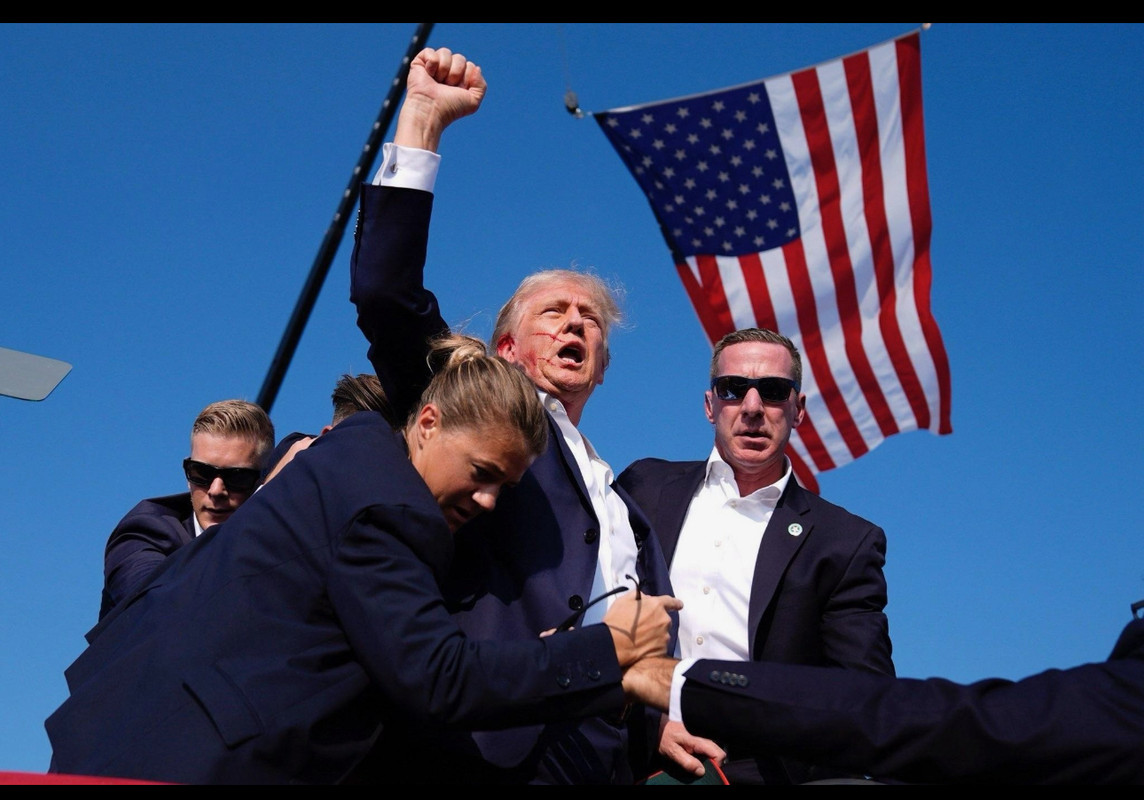- My Forums
- Tiger Rant
- LSU Recruiting
- SEC Rant
- Saints Talk
- Pelicans Talk
- More Sports Board
- Coaching Changes
- Fantasy Sports
- Golf Board
- Soccer Board
- O-T Lounge
- Tech Board
- Home/Garden Board
- Outdoor Board
- Health/Fitness Board
- Movie/TV Board
- Book Board
- Music Board
- Political Talk
- Money Talk
- Fark Board
- Gaming Board
- Travel Board
- Food/Drink Board
- Ticket Exchange
- TD Help Board
Customize My Forums- View All Forums
- Show Left Links
- Topic Sort Options
- Trending Topics
- Recent Topics
- Active Topics
Started By
Message
Posted on 5/1/25 at 9:52 pm to High C
Or maybe the Trump admin needs to stop trying to misapply that law.
The law used for decades allows them to do what they want to do in terms of deportations.
The law used for decades allows them to do what they want to do in terms of deportations.
Posted on 5/1/25 at 10:14 pm to LSUSkip
quote:
Any foreign "gang" should qualify as a foreign enemy when they arrive on US soil en masse.
correct
Posted on 5/1/25 at 10:24 pm to Stealth Matrix
quote:
The judiciary does not set laws.
They do uphold the laws though. If you want the laws changed, then do it the right way and pass legislation changing them.
The President doesn’t have the right to disregard the rule of law.
Posted on 5/1/25 at 10:41 pm to djsdawg
So you could use this law against the Mafia. Good luck with that.
Posted on 5/1/25 at 11:14 pm to Jbird
quote:
Fernando Rodriguez Jr.
The direct result of the 1965 Immigration and Nationality Act
This post was edited on 5/1/25 at 11:16 pm
Posted on 5/2/25 at 5:52 am to djsdawg
This particular gang is not only affiliated with the ruling Venezuelan government but many believe were sent here by Maduro himself for the express purpose of causing political chaos and unrest.
Lots of AEA standards are met here, if one can manage to tamp down the TDS flare ups.
Lots of AEA standards are met here, if one can manage to tamp down the TDS flare ups.
Posted on 5/2/25 at 5:54 am to prplhze2000
Are the mafia members foreign nationals here illegally? Are they affiliated with a hostile foreign government? Than yes.
Posted on 5/2/25 at 6:19 am to cajunangelle
quote:
Maduro Has Now Turned In State Evidence Against The Biden Admin & Is Releasing PROOF That Biden Asked The Venezuelan Government TO SHIP Tren de Aragua Dr*g Gangs Into The US.
This deserves its own thread.
Posted on 5/2/25 at 7:17 am to Jbird
Posted on 5/2/25 at 7:25 am to Bunk Moreland
quote:
While Judge Rodriguez’s decision applied only to Venezuelan immigrants in the Southern District of Texas — which includes cities like Houston, Brownsville and Laredo — it could have an effect, if not a binding one, on some of the other cases involving the administration’s use of the Alien Enemies Act.
I wonder if the ACLU can get one of these limited rulings in areas with all of the major detention centers
From the ruling:
quote:
In those decisions, however, the Supreme Court also identified issues related to the AEA that are subject to adjudication. In Ludecke, the Supreme Court confirmed that “resorts to the courts may be had . . . to challenge the construction and validity of the statute and to question the existence of the ‘declared war[.]’” Ludecke, 335 U.S. at 171; see id. at 163–64 (“[S]ome statutes ‘preclude judicial review.’ . . . Barring questions of interpretation and constitutionality, the [AEA] is such a statute.”) (emphasis added). And Johnson recognized that courts could “entertain [a detained individual’s] plea for freedom from Executive custody only to ascertain the existence of a state of war and whether he is an alien enemy and so subject to the [AEA].” Johnson, 339 U.S. at 775; see also Ludecke, 335 U.S. at 171 (“[R]esort to the courts may be had . . . to question the existence of the ‘declared war[.]’”). Relying on these decisions, the Supreme Court recently reaffirmed “that an individual subject to detention and removal under [the AEA] is entitled to ‘judicial review’ as to ‘questions of interpretation and constitutionality’ of the Act as well as whether he or she ‘is in fact an alien enemy fourteen years of age or older.’”5 J.G.G., 2025 WL 1024097, at *2.
quote:
No court appears to have applied the Baker analysis to the AEA. Based on the Supreme Court’s decisions regarding the AEA, as well as the principles enumerated in Baker, the Court concludes that while it may not adjudicate the veracity of the factual statements in the Proclamation, or the propriety of the steps taken by the President as to Venezuelan aliens and TdA members, the Court retains the authority to construe the AEA’s terms and determine whether the announced basis for the Proclamation properly invokes the statute.
quote:
Consistent with this conclusion, the Second Circuit during the 1940’s construed various provisions of the AEA. See, e.g., U S ex rel D’Esquiva v. Uhl, 137 F.2d 903, 905 (2d Cir. 1943) (determining the meaning of “citizen” and “native”: “The use by Congress of the four words ‘natives, citizens, denizens, or subjects’ indicated that each word is to have a significant and different meaning”); U.S. ex rel. Zdunic v. Uhl, 137 F.2d 858, 860 (2d Cir. 1943) (“The ultimate issue for determination is whether the relator is a ‘native, citizen, denizen, or subject’ of Germany. The meaning of those words as used in the statute, [ ] presents a question of law.”); U.S. ex rel. Gregoire v. Watkins, 164 F.2d 137, 138 (2d Cir. 1947) (considering “whether the relator is a ‘native’ of Germany within the meaning” of the AEA); U.S. ex rel. Kessler v. Watkins, 163 F.2d 140, 142 (2d Cir. 1947) (concluding that the meaning of threatened “invasion” or “predatory incursion” did not require “active hostilities”). And the Court is unaware of any judicial authority declining to determine the meaning of the AEA’s terms based on the political question doctrine.
quote:
Baker does not require a different conclusion. It is true that the Constitution ascribes authority and responsibility for foreign policy and national security to the Legislative and Executive branches. And “[m]atters intimately related to foreign policy and national security are rarely proper subjects for judicial intervention.” Haig v. Agee, 453 U.S. 280, 292 (1981); see also Dep’t of Navy v. Egan, 484 U.S. 518, 527 (1988) (“nless Congress specifically has provided otherwise, courts traditionally have been reluctant to intrude upon the authority of the Executive in military and national security affairs.”); Orloff v. Willoughby, 345 U.S. 83, 91 (1953) (declining to exercise judicial review over the President’s decision not to commission Orloff as an Army officer: “Whether Orloff deserves appointment is not for judges to say”). But construing the language of the AEA does not require courts to adjudicate the wisdom of the President’s foreign policy and national security decisions. [u]Determining what conduct constitutes an “invasion” or “predatory incursion” for purposes of the AEA is distinct from ascertaining whether such events have in fact occurred or are being threatened. The former turns on applying accepted principles of statutory construction; the latter on analyzing factual intelligence and data, including some to which the Executive Branch possesses unique access, and applying independent judgment and weighing competing priorities. Courts routinely engage in the former, but are ill-equipped to second guess the President’s decisions as to the latter. This distinction also refutes Respondents’ contention that applying judicial review would rely on “no manageable standards.” On the contrary, courts regularly apply known canons of construction to determine the meaning of statutory language.
Posted on 5/2/25 at 7:25 am to SlowFlowPro
quote:
As a corollary, the Court concludes that a Presidential declaration invoking the AEA must include sufficient factual statements or refer to other pronouncements that enable a court to determine whether the alleged conduct satisfies the conditions that support the invocation of the statute. The President cannot summarily declare that a foreign nation or government has threatened or perpetrated an invasion or predatory incursion of the United States, followed by the identification of the alien enemies subject to detention or removal. Cf. United States v. Abbott, 110 F.4th 700, 736 (5th Cir. 2024) (“To be sure, a state of invasion under Article I, section 10 does not exist just because a State official has uttered certain magic words.”) (Ho, J., concurring). Allowing the President to unilaterally define the conditions when he may invoke the AEA, and then summarily declare that those conditions exist, would remove all limitations to the Executive Branch’s authority under the AEA, and would strip the courts of their traditional role of interpreting Congressional statutes to determine whether a government official has exceeded the statute’s scope. The law does not support such a position. See, e.g., Comm. for Nuclear Resp., Inc. v. Seaborg, 463 F.2d 788, 793 (D.C. Cir. 1971) (“An essential ingredient of our rule of law is the authority of the courts to determine whether an executive official or agency has complied with the Constitution and with the mandates of Congress which define and limit the authority of the executive.”); see also Boumediene v. Bush, 553 U.S. 723, 783 (2008) (reasoning that a court considering a person’s habeas action challenging his detention based on an executive order “must have sufficient authority to conduct a meaningful review of both the cause for detention and the Executive’s power to detain”).
quote:
The Court is mindful that the Executive Branch may possess sensitive and confidential information leading to its conclusion that a foreign nation or government has attempted, threatened, or perpetrated an invasion or predatory incursion of the United States. But this possibility does not require the conclusion that the AEA is an exception to the general rule that courts possess the traditional role of interpreting Congressional statutes and determining whether a government actor has exceeded the scope of the law. While a President’s declaration invoking the AEA need not disclose all of the information that the Executive Branch possesses to support its invocation of the statute, it must identify sufficient information to permit judicial review of whether the foreign nation or government’s conduct constitutes an actual, attempted, or threatened invasion or predatory incursion of the United States.7
quote:
Petitioners’ briefing contains numerous sources contemporaneous to the enactment of the AEA in which “invasion” and “predatory incursion” expressly reference or imply military action. Those sources include dictionary definitions, historical records such as letters, and court decisions. For example: Webster’s Dictionary, Invasion (1828): “particularly, the entrance of a hostile army into a country for purpose of conquest or plunder, or the attack of a military force”; Johnson’s Dictionary, Invasion (1773): “[h]ostile entrance upon the right or possession of another; hostile encroachment,” such as when “William the Conqueror invaded England”; “Small, predatory incursions of the French, though they might occasion great destruction of property, would not be dangerous, and the militia might be sufficient to repel them; but what we have to guard against is an invasion by a powerful army of veterans: and I do not know any body of militia adequate to stop their progress; and a fatal pannic might be the consequence.” Timothy Pickering to Alexander Hamilton (June 9, 1798) (emphasis added). “I am much obliged to your Excellency for your letter of the 10th. of January, giving me an account of the enemy’s incursion into your state. . . . But as the evils you have to apprehend from these predatory incursions are not to be compared with the injury to the common cause and with the danger to your state in particular, from the conquest of those states southward of you, I am persuaded the attention to your imediate safety will not divert you from the measures intended to reinforce the Southern Army and put it in a condition to stop the progress of the enemy in that Quarter.” Letter from George Washington to Thomas Jefferson (Feb. 6, 1781) (emphasis added). Huidekoper’s Lessee v. Douglass, 7 U.S. (3 Cranch) 1, 11 (1805) (explaining that in 1792, “an Indian war existed on [Pennsylvania’s] frontier” and the state population desired to “repel the predatory incursions of the Indians”).
Respondents do not challenge these usages. Instead, they contend that other contemporaneous sources reflect a broader understanding of “invasion,” with no express or implicit military requirement. In support of their construction, however, they provide only two examples, both of them from dictionaries. One authority defines “invasion” as any “hostile entrance.” 1 JOHN ASH, THE NEW AND COMPLETE DICTIONARY OF THE ENGLISH LANGUAGE (1775). And A Complete Dictionary of the English Language, a source on which Petitioners also rely, includes “hostile encroachment” as a definition, with no reference to military force. See Invasion, A DICTIONARY OF THE ENGLISH LANGUAGE (1773). Respondents identify no other historical records supporting their proposed meaning of “invasion,” and they offer no sources from the nation’s founding era as to the ordinary meaning of “predatory incursion.”
To augment the parties’ submissions, the Court reviewed numerous historical records using “invasion,” “predatory incursion,” and “incursion” for the period from 1780 through 1820. See Appendix A (identifying records and providing links).9 The review strongly supported the Petitioners’ position. In the significant majority of the records, the use of “invasion” and “predatory incursion” referred to an attack by military forces. This held true even when the historical record did not concern the Revolutionary War or the War of 1812. The usages of “predatory incursion” at times referred to entries by Native Americans into the western territories, as did usages of “incursion.” But even these records refer to an organized group of armed individuals entering an area to attack a fort, settlement, or town, and the writer typically discussed the need for a military response to the entry. In only a few sources did the use of “invasion” or “predatory incursion” reference a non-military action. While the Court does not represent that its review constitutes a vigorous corpus linguistics analysis, the results provide a significant level of confidence that a complete review would generate similar conclusions.
quote:
The historical records that the parties present, supplemented by the additional records that the Court reviewed, demonstrate that at the time of the AEA’s enactment, the plain, ordinary meaning of “invasion” was an entry into the nation’s territory by a military force or an organized, armed force, with the purpose of conquering or obtaining control over territory. In a similar vein, the common usage of “predatory incursion” and, to a lesser degree, “incursion,” referenced a military force or an organized, armed force entering a territory to destroy property, plunder, and harm individuals, with a subsequent retreat from that territory. Although other uses exist for these terms, those rare uses do not represent the ordinary meaning of those terms.
This post was edited on 5/2/25 at 7:29 am
Posted on 5/2/25 at 9:01 am to Jbird
quote:
U.S. District Judge Fernando Rodriguez Jr rules Trump use of Alien Enemies Act for gangs is ‘unlawful
Why should we care?
I just ruled that Ferbando has to surrender to Calcasieu Parish Jail, I have just as much authority to do that as he does to limit use of the AEA
Posted on 5/2/25 at 9:12 am to BlueFalcon
quote:
Why should we care?
I just ruled that Ferbando has to surrender to Calcasieu Parish Jail, I have just as much authority to do that as he does to limit use of the AEA
Posted on 5/2/25 at 9:17 am to Vacherie Saint
quote:
This particular gang is not only affiliated with the ruling Venezuelan government but many believe were sent here by Maduro himself for the express purpose of causing political chaos and unrest.
Lots of AEA standards are met here, if one can manage to tamp down the TDS flare ups.
Then present the evidence and show it. Per the ruling they did not really attempt to do that. If they expect this use of the AEA to not get overturned by SCoTUS they're going to need to do that. "Just trust me, bro." ain't gonna work, and the people advising Trump know that, or at least they should.
Posted on 5/2/25 at 9:19 am to Jbird
quote:
Judge rules Trump use of Alien Enemies Act for gangs is ‘unlawful’
They should release these guys into this judge's neighborhood.
Posted on 5/2/25 at 9:21 am to Jbird
quote:
organized, armed force” is entering the United States
Aren't MS13 and TDA "organized" and "armed"?? They have organizational structure and carry weapons, and have intent to harm US citizens. How exactly does this differ from other adversarial armies? They lack the proper uniforms?
We are sitting ducks if some foreign army actually wants to invade. Bring troops to our shores, and then file for amnesty is all they need to do before taking us all out. Hell, half our citizens would cheer for them.
Popular
Back to top


 0
0










